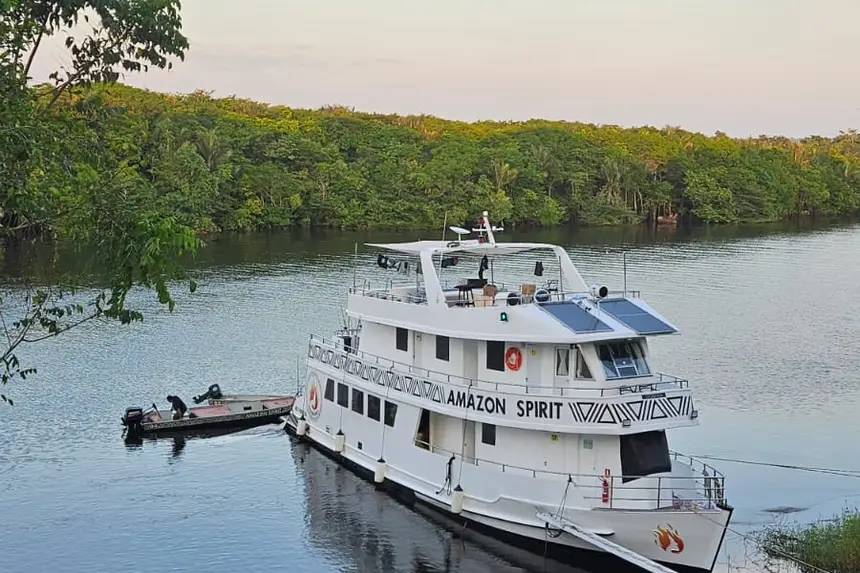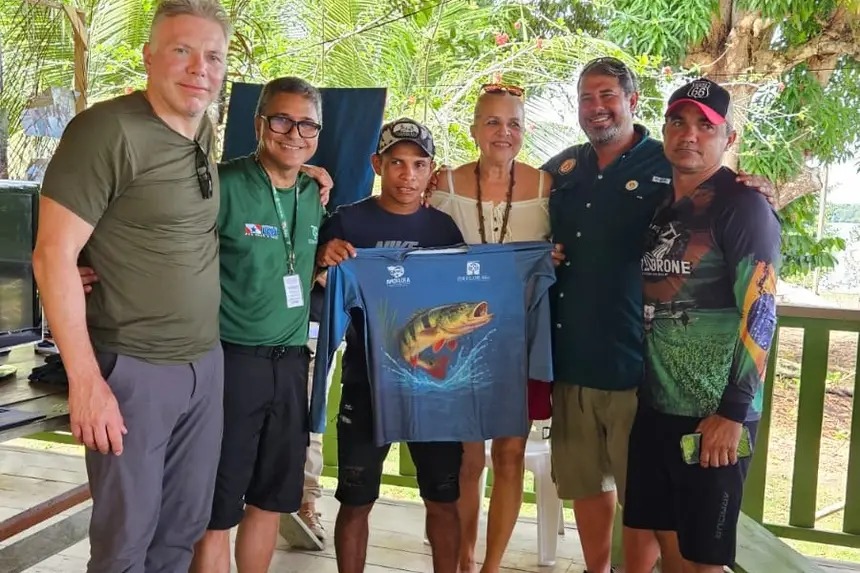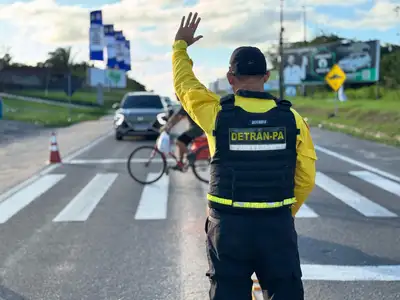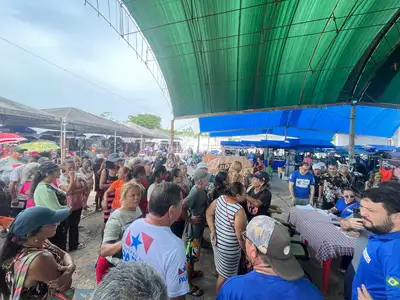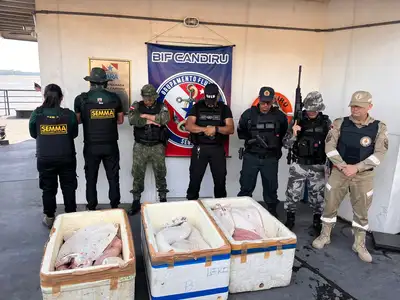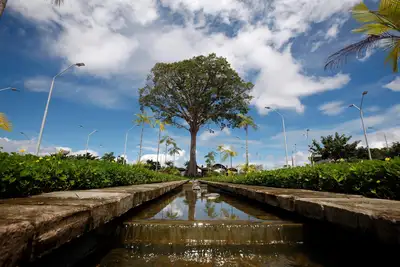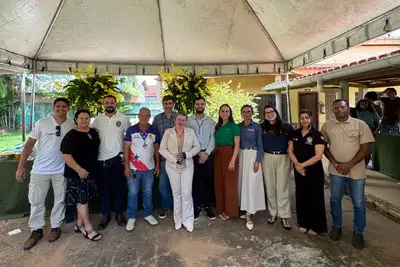Sport fishing in the Faro Forest ensures environmental conservation and income for the community
Practice is considered sustainable tourism with high economic potential
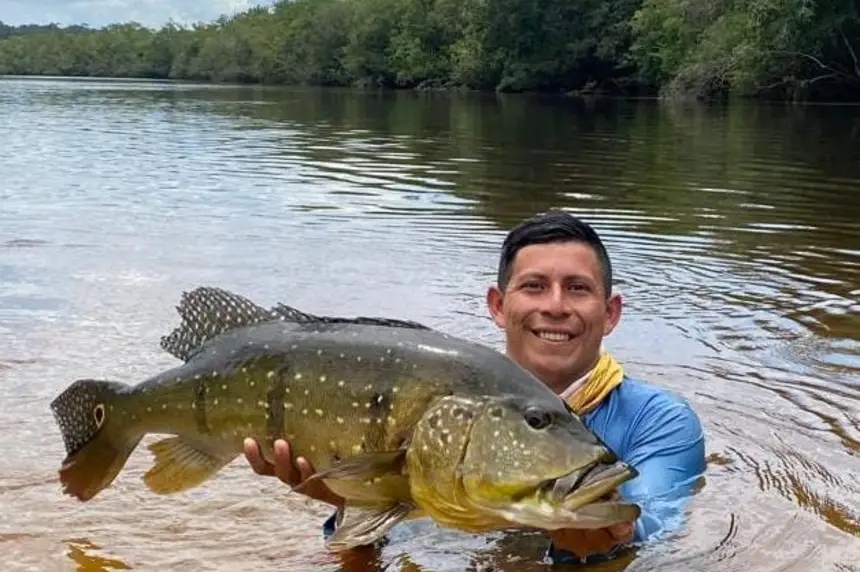
The management of the sport fishing season in the State Forest (Flota) of Faro, in the western region of Pará, was discussed in a meeting between the Forest Development and Biodiversity Institute (Ideflor-Bio), residents of the conservation unit, and sport fishing operators in the conservation unit.
The meeting focused on improving the management of the activity, which takes place from August to December. Sport fishing combines environmental conservation and income generation for the riverside communities of Monte Sião and Português.
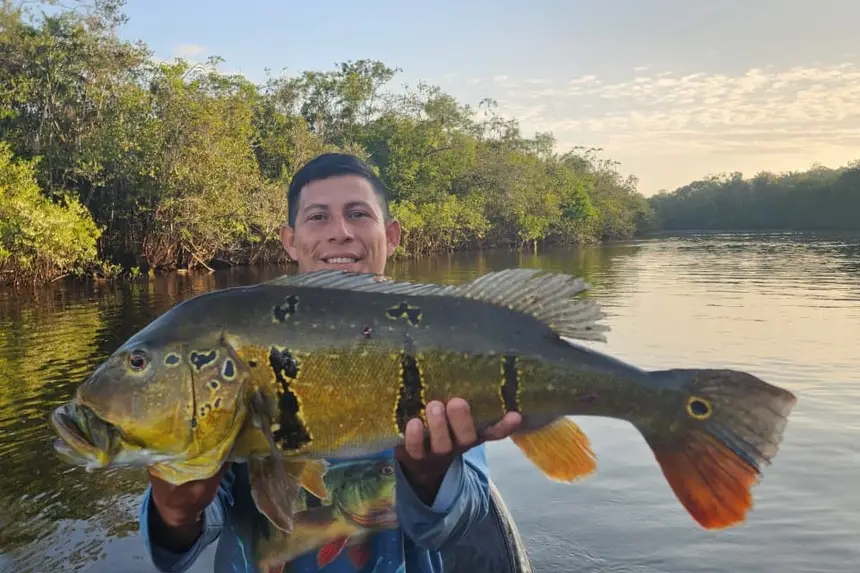
During the meeting at the Integrated Community Center of the Flota de Faro, topics such as the authorization processes for sport fishing, hiring traditional residents for tourism services, and the presentation of the evaluation form for the activity guides were addressed, which will allow identifying points that need qualification. Customized shirts were also given to the sport fishing guides, made by the Directorate of Management and Monitoring of Conservation Units (DGMUC) of Ideflor-Bio.
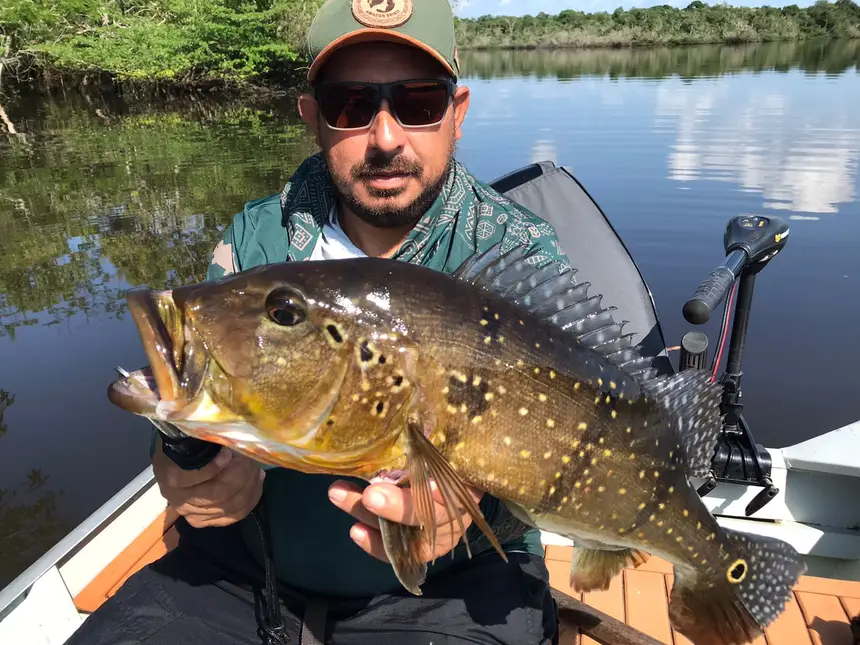
Income Generation - Well-organized sport fishing tourism is considered a segment of sustainable tourism with high economic potential. In Brazil, it generates about R$ 1 billion per year.
In 2024, only in the Flota de Faro, the activity generated over R$ 25,000 in socio-environmental fees destined for the Association of Residents of the Flota de Faro (AmoFlota). For this year, Ideflor-Bio ensured that each sport fishing guide receives a base of R$ 210 per day of service, a value that can be increased by tips that can reach up to R$ 2,000, representing an important source of income for local families.
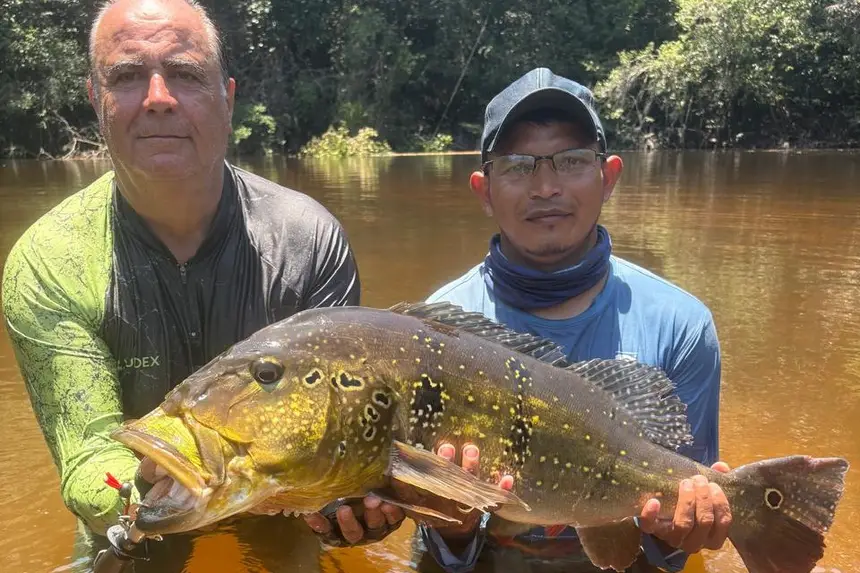
According to Daiane Ribeiro, secretary of AmoFlota, the activity has multiple positive effects for the region. “The practice of sport fishing promotes the conservation of our aquatic ecosystems, especially the peacock bass, which is the main product of the region, along with other species. This encourages sustainable practices in the river and also generates economic development. The tourists attracted stimulate the local economy, bringing income to riverside communities. Furthermore, sport fishing promotes sustainable tourism and unique experiences for those visiting the Flota de Faro,” she highlighted.
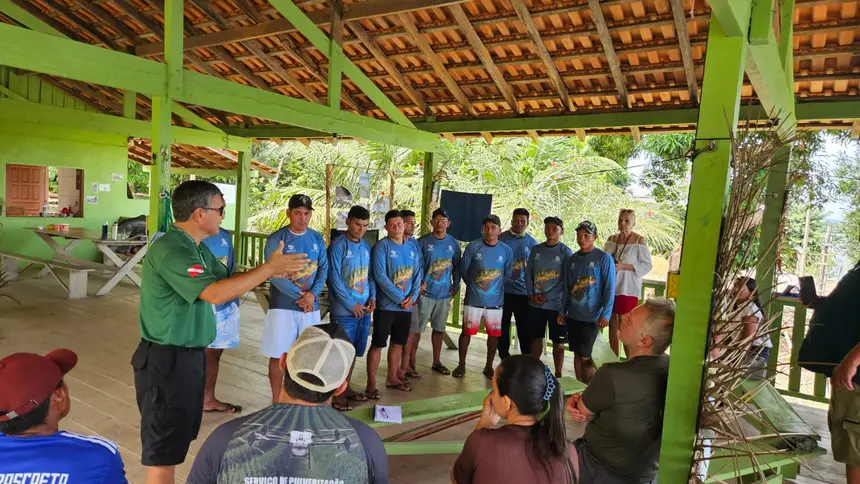
For local guides, the standardization and training offered by the partnership between AmoFlota and Ideflor-Bio strengthen the activity. With greater safety, visibility, and professional recognition, residents take on a central role in the management of the sport fishing season, ensuring that the activity remains aligned with sustainability principles.
Opportunities - With the season underway, the expectation is that sport fishing in the Flota de Faro will continue to consolidate as a reference in Pará, uniting environmental conservation, cultural appreciation, and economic benefits for the communities living in the conservation unit.
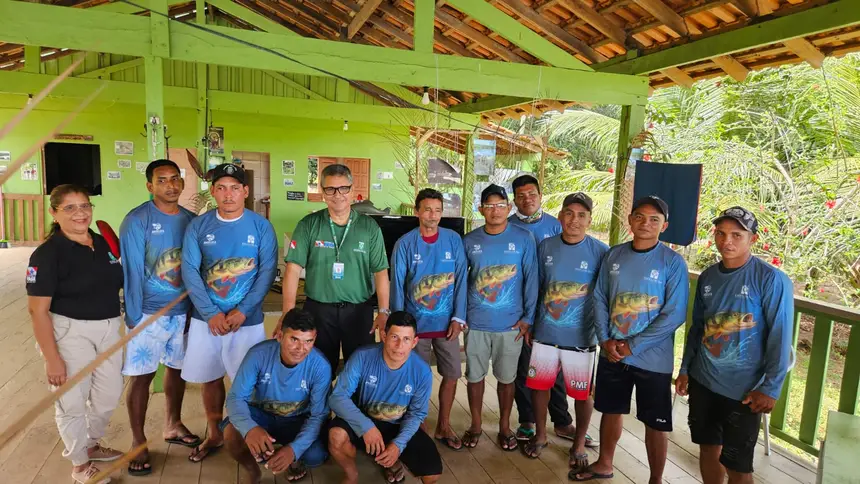
The president of Ideflor-Bio, Nilson Pinto, emphasized that sport fishing in the Flota de Faro is a clear demonstration that it is possible to reconcile economic development with environmental conservation. “When promoted in an orderly and participatory manner, as we are doing, this activity becomes an important strategy for income generation for local communities, in addition to strengthening biodiversity protection and valuing the traditional knowledge of residents. Ideflor-Bio will remain committed to this model of sustainable tourism that respects nature and promotes social inclusion,” he stressed.
For the planning and management technician in tourism at Ideflor-Bio, Deoclécio Junior, he highlighted the importance of the union between conservation and opportunity generation. “Sport fishing in the Flota de Faro is a concrete example of how tourism can be sustainable and fair. The involvement of traditional residents is essential, as they ensure the authenticity and quality of the experience. At the same time, this activity directly contributes to the preservation of biodiversity and the strengthening of the community economy,” he stated.


